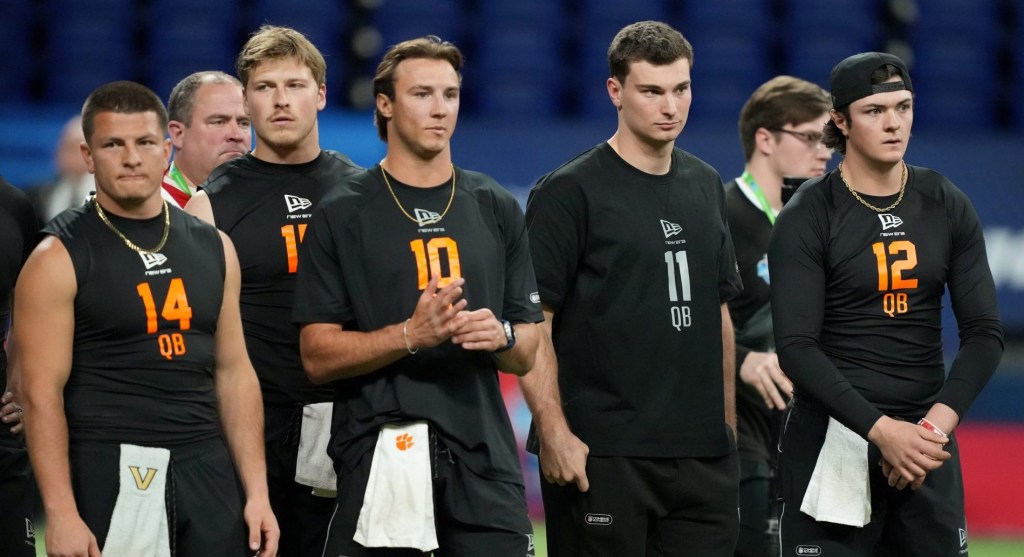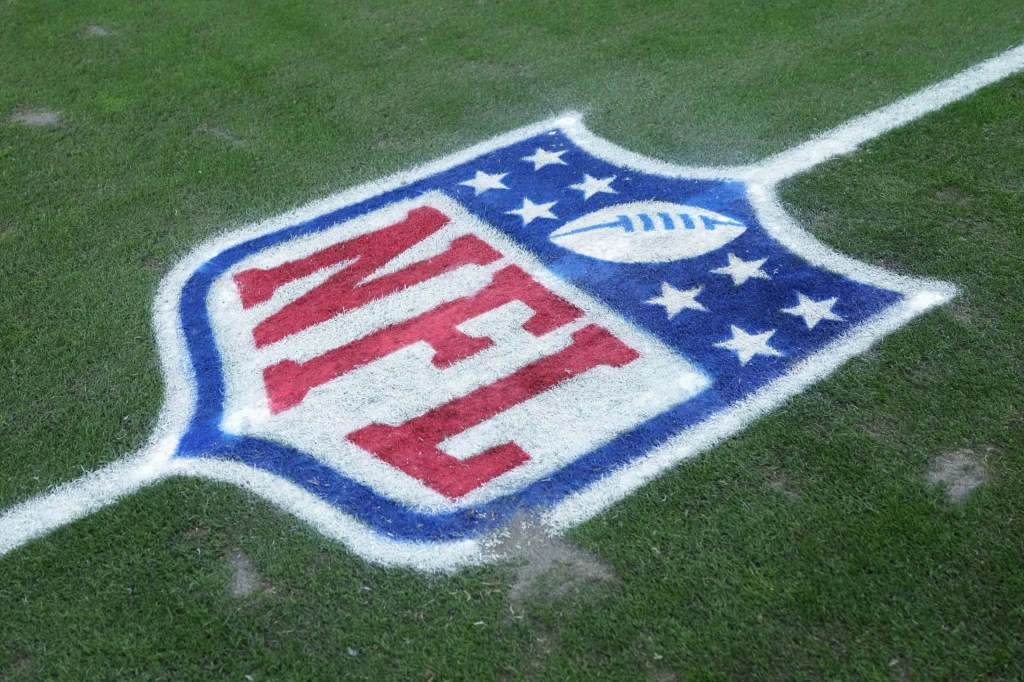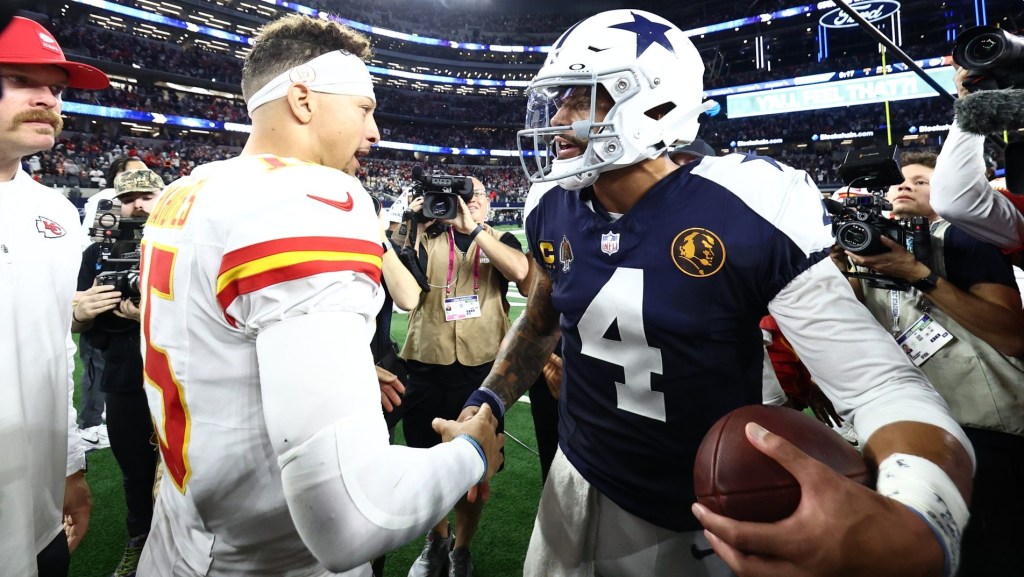When the World Series concludes, a product favored by many MLB players could come under new restrictions: nicotine pouches.
The tiny, typically white pouches like the ones produced by market-leader Zyn aren’t explicitly banned like leaf tobacco in Major League Baseball. The pouches—sold in various flavors and often in containers that resemble canned snuff—contain only nicotine, and experts say they are a safer alternative to tobacco.
But a source familiar with MLB’s tobacco program told Front Office Sports that the league is studying new restrictions.
“To the extent there is ambiguity regarding the status of these novel products at the Major League level, we plan to address that with the Major League Baseball Players Association this offseason,” said the source, who spoke to FOS on condition of anonymity due to the sensitive nature of the topic.
What the league wants to avoid is players (and other team personnel) using nicotine products in places, “where it is visible to younger fans who want to emulate what their favorite players do on the field,” the source said.
In the aftermath of Hall of Famer Tony Gwynn’s 2014 death from salivary gland cancer that many believe stemmed from his years of using smokeless tobacco, MLB banned the use of chewing tobacco for new players starting in 2016.
Like that rule change, any new rule for nicotine pouches would have to be negotiated with the MLB Players Association. Those discussions are expected to take place this offseason, according to the source. That’s not the case in minors where players and field staff are barred from using nicotine pouches as part of a “similar product” language in a tobacco ban in MLB-affiliated clubs that dates back more than a decade.
An MLBPA spokesperson declined to provide a comment to FOS.
See No Evil
Meanwhile in the NFL, ESPN cameras caught Buccaneers quarterback Baker Mayfield on the sideline popping some cool mint Zyn—often referred to as “pillows”—into his mouth during the Monday Night Football game against the Ravens in Week 7. Unlike in MLB, nicotine pouches are prohibited for NFL players under rules and FOS confirmed that Mayfield would receive a letter reminding him of league policy. (The letter was first reported by ESPN.) Mayfield will not face discipline and no NFL player has faced sanctions over the use of nicotine pouches.
The WNBA and NBA don’t have a set policy for nicotine pouches. MLS bans the use of any products that contain nicotine during contests and also prohibits players from entering into sponsorship deals with tobacco and nicotine companies. The NHL did not respond to requests for comment on its nicotine pouch policies.
Philip Morris International—the parent company of Zyn-maker Swedish Match—said in a statement to FOS that while it “appreciates its loyal consumers,” it “encourages them not to show the product in any situation where someone under 21 years old could see it.”
Like nicotine vapes that have gained popularity over the past decade, sales of nicotine pouches are also restricted to adults 21 and older.
Tobacco use in the U.S.—especially smoking—has been on a decline for decades. As of 2022, smoking rates in adults have fallen 73% since 1965 to 11.6% of the adult population, according to an American Lung Association survey. American Lung Association data also shows smoking rates in those 17 and younger have fallen 86% from 1997 through 2021.
According to the Centers for Disease Control and Prevention, nicotine pouch sales in the United States have exploded, increasing from 126 million pouches in August 2019 to 808 million in March 2022.
There are many factors contributing to the decline in tobacco use in recent decades, including a better understanding of the health risks, smoking bans in public places, restrictions on advertising, and warning labels. Some of those changes were brought about as part of a 1998 settlement agreement between four major tobacco companies and 46 states, D.C., and five U.S. territories.
In recent years, e-cigarettes like Elf Bar and Juul and other similar vaping products have been credited with further reducing the number of adults using combustible cigarettes. There’s been a downside that likely explains Big Tobacco’s worries over how nicotine pouches are perceived: the use of their products by people under the age of 21.
“That’s the concern,” says Vaughan W. Rees, director of Harvard’s Center for Global Tobacco Control. “Products like Zyn have the potential to create appeal among young people for many reasons, many of the same reasons vaping became so popular initially among younger people.”
‘Interest of Public Health’
Earlier this month, the FDA and CDC released their latest National Youth Tobacco Survey that showed cigarette smoking was at its lowest levels since the survey was first conducted more than a decade ago. The survey—which classifies e-cigarettes and nicotine pouches as “tobacco products”—showed 5.9% of respondents used e-cigarettes and another 1.8% used nicotine pouches. Only 1.4% of those surveyed use traditional combustible cigarettes and 1.2% reported using traditional chewing tobacco.
The FDA received the authority to regulate tobacco products in 2009 and so far only one nicotine pouch product has received authorization: Verve, which was approved in 2021 after Altria discontinued that line. But Zyn, Altria’s On, Swisher International’s Rogue, and other nicotine pouch brands are likely to remain on the market until the FDA makes a decision on the safety of the products.
“Zyn is going to continue to exist until the FDA finally gets caught up with it and makes a determination that the product is in the interest of public health,” Rees says. “It very well could be that the product has the potential to reduce nicotine exposure in adult consumers compared with other forms of smokeless tobacco products. The FDA has authorized a number of e-cigarettes, for sale as reduced exposure products, we also need to ensure that we aren’t creating a new generation of young people getting exposed to nicotine products through products like Zyn.”
Rees says keeping impressionable youngsters from seeing nicotine pouches used by their sports heroes is a major part of that.
“They’re not suitable for use by young people and they should not be connected in any way to pro sports,” Rees says. “Pro sports leagues have an obligation to their fans and the people who follow those sports to set the best possible example. That has to include not advocating the use of addictive products.”
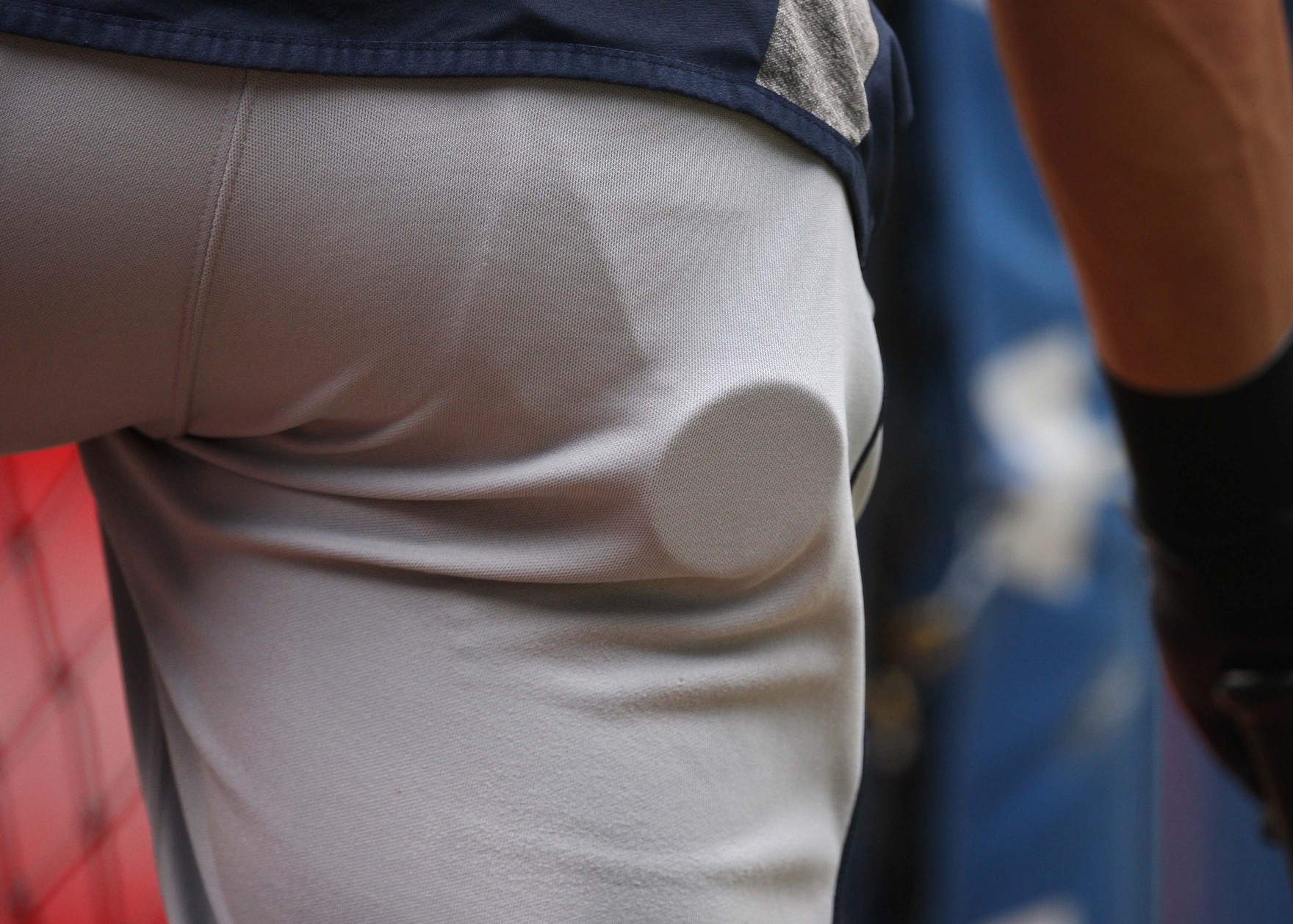

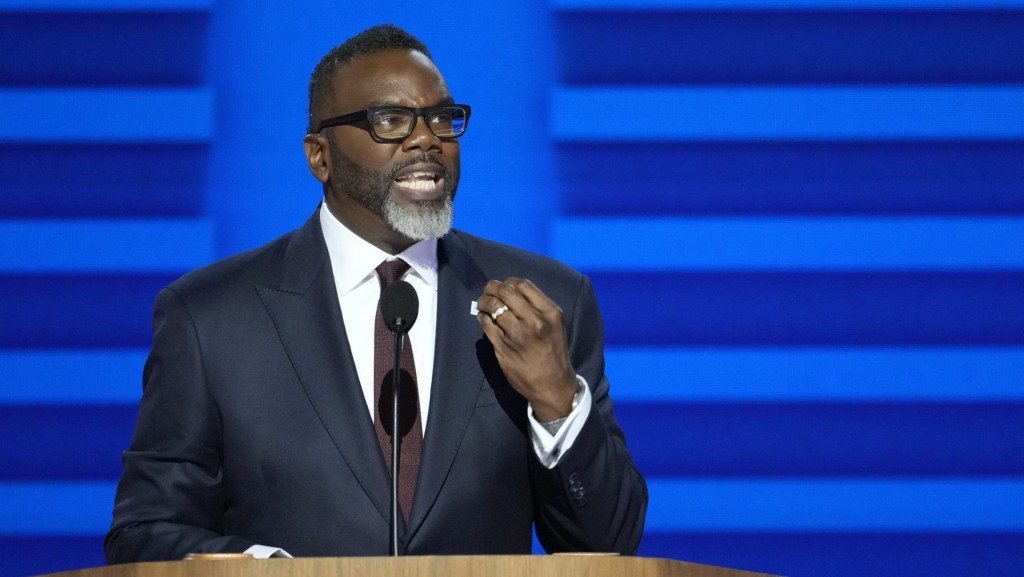
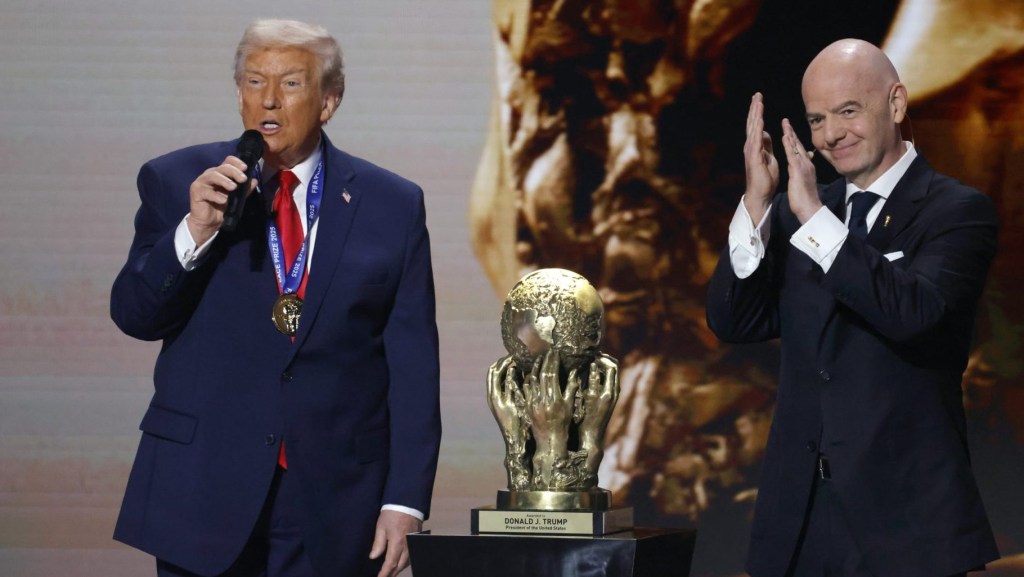


![[Subscription Customers Only] Jun 15, 2025; Seattle, Washington, USA; Botafogo owner John Textor inside the stadium before the match during a group stage match of the 2025 FIFA Club World Cup at Lumen Field.](https://frontofficesports.com/wp-content/uploads/2026/02/USATSI_26465842_168416386_lowres-scaled.jpg?quality=100&w=1024)
![[Subscription Customers Only] Jul 13, 2025; East Rutherford, New Jersey, USA; Chelsea FC midfielder Cole Palmer (10) celebrates winning the final of the 2025 FIFA Club World Cup at MetLife Stadium](https://frontofficesports.com/wp-content/uploads/2026/02/USATSI_26636703-scaled-e1770932227605.jpg?quality=100&w=1024)

![[US, Mexico & Canada customers only] Feb 6, 2026; Riyadh, SAUDI ARABIA; Jon Rahm in action during the third round of play at LIV Golf Riyadh at the Riyadh Golf Club.](https://frontofficesports.com/wp-content/uploads/2026/03/USATSI_28173562_168416386_lowres-scaled.jpg?quality=100&w=1024)

![[US, Mexico & Canada customers only] Sep 28, 2025; Bethpage, New York, USA; Team USA's Bryson DeChambeau reacts after hitting his approach on the 15th hole during the singles on the final day of competition for the Ryder Cup at Bethpage Black.](https://frontofficesports.com/wp-content/uploads/2026/03/USATSI_27197957_168416386_lowres-scaled.jpg?quality=100&w=1024)

